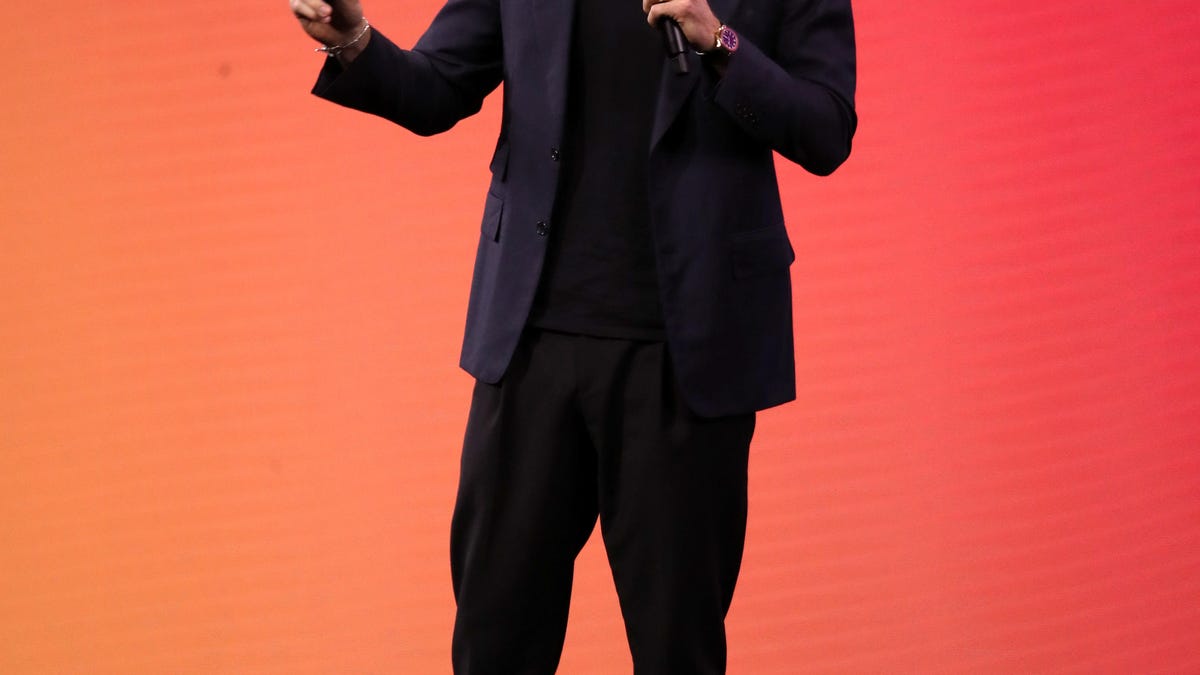No surprise: Top Facebook execs say the social network shouldn't be broken up
Adam Mosseri and Andrew Bosworth say keeping the company together will help it create more value.

Adam Mosseri speaks during the F8 Facebook Developers conference on April 30, 2019.
Instagram shouldn't be split out of Facebook, the man in charge of the picture-sharing service said Monday, saying a breakup of the social network would make it harder to keep users safe.
Adam Mosseri, speaking at the Code Conference in Scottsdale, Arizona, acknowledged that Facebook hadn't focused enough on the "unintended consequences" of its products. But he said keeping the company together would help it create more value.
"It's not fun to be criticized and written about that way," Mosseri said. "But i really believe we create an immense amount of value in the world."
Andrew Bosworth, who runs Facebook's VR and AR operations, and shared the stage with Mosserri, would only weaken the two entities.
"If you break Facebook and Instagram apart, they have the same attack surfaces," he said, adding they would each have fewer resources.
The comments come as calls to break up tech giants grow. Facebook's critics, including co-founder Chris Hughes, think the social network has grown too big to control. Some lawmakers, including Democratic presidential candidate Elizabeth Warren, want regulators to split Instagram and WhatsApp from the social network. Facebook has pushed back against the idea. About 2.7 billion people use Facebook or its Instagram, WhatsApp or Messenger services.
CEO Mark Zuckerberg has called for more government regulation to help combat some of its biggest woes such as harmful content, election integrity and privacy. The social network has faced a series of scandals since revelations surfaced last year that UK political consultancy Cambridge Analytica harvested the data of up to 87 million Facebook users without their consent.
Facebook is also facing a record-setting fine of up to $5 billion from the Federal Trade Commission, which is investigating the company's alleged privacy mishaps.
Bosworth told the audience Facebook's VR platform has generated $5 million in sales. Bosworth, who's known as "Boz," called the revenue performance a "big deal," adding that the company's products were becoming a "full ecosystem.
VR, or virtual reality, is accessed through a headset and allows for the creation of new worlds or experiences. AR, or augmented reality, uses eyewear similar to glasses and allows for additional data to be layered onto a images of the real world.
Bosworth said VR and AR fit into Facebook's core mission, allowing people to connect online.
"VR is actually a way to go deeper," Bosworth said. "My mission is to make people feel together wherever they are. VR is an unparalleled opportunity for that."
Andrew Bosworth in 2017.
Facebook is putting its weight behind the belief that VR will become the next big computing platform, and Zuckerberg has discussed a future in which users will be able to experience each other's moments, such as birthdays, through virtual reality headsets. VR, however, hasn't gone mainstream and remains an enthusiast technology.
The company, which owns virtual reality headset maker Oculus, has been trying to fuel the popularity of VR by making it more affordable. Facebook started shipping the Oculus Quest and the Oculus Rift S in May and both cost $399, which is cheaper than some of its competitors like the HTC Vive.
Meanwhile, the social network is also trying to make video chatting more immersive. Facebook released new video chat devices Portal and Portal Plus last year in the US and plans to roll it out to more countries including Europe in the fall. The device has an AI-powered Smart Camera that will sense your movements, automatically panning and framing the shot.
CNET's Queenie Wong contributed to this report.